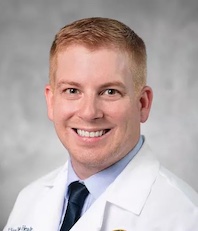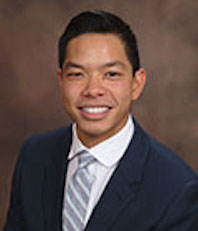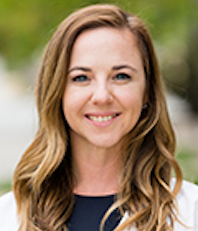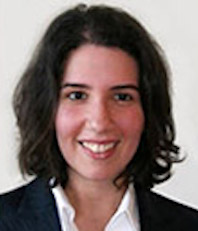Changes in Resident Duty Hours Spark Debate
August 1, 2017 | Lindsay Morgan
How do you strike a balance between patient safety, resident education, and resident quality of life?
In the spring of 2017, the Accreditation Council for Graduate Medical Education (ACGME) attempted yet again to find a better balance. With changes in effect as of July 1, 2017, section VI of the common program requirements for resident training include two significant changes: eliminating the rule that prohibited first-year residents from working more than 16 hours at a time; and counting clinical work done from home as hours worked.
The rule changes follow evidence generated from the FIRST trial (Flexibility in Duty Hour Requirements for Surgical Trainees), a national, cluster-randomized trial involving 117 general surgery residency programs in the United States, which found that more flexible hours—defined as a waiver of the requirements concerning maximum shift length and minimum time off between shifts—were not associated with an increased rate of death or serious complications.
Debate about resident duty hours goes back to the 1970s, but gained public attention (and notoriety) in the mid-1980s following the death of Libby Zion at Columbia University hospital in New York City. Profiled in A Case That Shook Medicine , 18-year-old Zion died within 24 hours of an emergency hospital admission in 1984. Her father, lawyer and journalist Sidney Zion, brought the case to national attention after learning that her primary doctors had been medical residents covering dozens of patients and receiving relatively little supervision.
The case set in motion a series of reforms. In 2003, the ACGME introduced national regulations that limited resident duty periods to 80 hours per week, capped overnight shift lengths, and mandated minimum time off between shifts. Concerns persisted, and in 2011, the ACGME implemented further restrictions to shorten maximum shift lengths for interns and increase time off after overnight on-call duty for residents.
Six years later, the 16-hour rule is gone. The new rules put first-year residents on the same schedule as other residents—subject to the 28-hour duty period limit for all residents (24 hours of call plus 4 hours of transition).
Many welcome the new guidelines.
 Ryan Broderick, a Chief General Surgery resident and member of the GME Resident Physician Council, says that the FIRST trial confirmed what many already suspected: "[The 16-hour rule] offered no protection for patients, in fact, it created issues with continuity of care and patient ownership."
Ryan Broderick, a Chief General Surgery resident and member of the GME Resident Physician Council, says that the FIRST trial confirmed what many already suspected: "[The 16-hour rule] offered no protection for patients, in fact, it created issues with continuity of care and patient ownership."
 John Pang, a PGY-4 Otolaryngology resident, agrees, and suggests that other mechanisms for ensuring patient safety are more impactful than limiting first-year resident work hours. "Epic [electronic medical records software] now has built-in safety checks that prompt us when patients are at high risk for blood clots, or are overdue for urinary catheter removal, for example. This is one of the most effective patient safety interventions I've witnessed in my time as a resident. It has so many safeguards built in; it frees up your mind and it frees up your time."
John Pang, a PGY-4 Otolaryngology resident, agrees, and suggests that other mechanisms for ensuring patient safety are more impactful than limiting first-year resident work hours. "Epic [electronic medical records software] now has built-in safety checks that prompt us when patients are at high risk for blood clots, or are overdue for urinary catheter removal, for example. This is one of the most effective patient safety interventions I've witnessed in my time as a resident. It has so many safeguards built in; it frees up your mind and it frees up your time."
 In addition to negligible impact on patient safety, many say that the 16-hour rule isolated interns from their more senior peers. Simone Langness, a Chief General Surgery resident and member of the GMEC Committee, who was in the first batch of interns to be affected by the 16-hour rule, says "It was really frustrating. You walked in and there was this idea that we weren't somehow grown up enough to take a 24-hour call."
In addition to negligible impact on patient safety, many say that the 16-hour rule isolated interns from their more senior peers. Simone Langness, a Chief General Surgery resident and member of the GMEC Committee, who was in the first batch of interns to be affected by the 16-hour rule, says "It was really frustrating. You walked in and there was this idea that we weren't somehow grown up enough to take a 24-hour call."
Chris Reid, a Chief resident in Plastic Surgery, who, like Langess, was an intern the first year the new policy went into effect, agrees: "It really put a target on our backs. At times, [more senior residents] were really harsh. They actually came up with an offensive name for us—5 th year medical students. We all still worked 80-90 hours a week, we just did it in a different fashion."
The 16-hour rule was also thought to dilute the surgical experience of interns, and create staffing woes. A Health Affairs article notes that "it is likely that the American Board of Surgery requirement instituted in 2014, that surgical residents must participate in 250 cases (as junior surgeon or first assist) by the end of postgraduate year 2 reflects the fact that rigid postgraduate year 1 duty hour limitations resulted in residents not spending as much time in the operating room in the early years of training."
Some echo this in their own experience. Says Reid: "I remember vividly multiple times when I'd be overnight and there was a case I'd want to do in the morning but I was told: you have to go home. You're not allowed to be here. Which was a bummer."
Pang takes another view, attributing OR dilution for junior residents, not only to duty hour rules, but also to the medical/legal climate: "A lot of decisions are attending-driven now. Sure, the early resident operative experience has become somewhat diluted, but that's because there's greater emphasis on outcomes, malpractice, and detailed documentation for billing."
What about resident well-being?
As the Surgery Department Chair Bryan Clary has noted: "The intern year is a difficult one. Interns go from a relative life of leisure in the fourth year of medical school where they travel the country interviewing and spend the last few months in easy daytime courses—to an 80-hour per week, emotionally draining, and physically challenging year full of huge responsibility."
Is there a case for easing interns into the rigors of the surgical lifestyle?
 Some think there is. Rebecca Marmor, a General Surgery PGY-4 resident who just completed a two-year bioinformatics fellowship, says: "When I was an intern, I remember thinking that I'd rather work 24 hours a day. With that schedule, you get a post-call day. Since we didn't take full call, we didn't have that. So, if my friends were on the converse schedule, I couldn't see them. It was really isolating. Now that I'm further along, though, I think a 24-hour shift is a lot for an intern. You need a lot of physical stamina, to be able to stay awake for 30 hours and make careful decisions, but that's developed over time. Every decision that they're making, they've never made before."
Some think there is. Rebecca Marmor, a General Surgery PGY-4 resident who just completed a two-year bioinformatics fellowship, says: "When I was an intern, I remember thinking that I'd rather work 24 hours a day. With that schedule, you get a post-call day. Since we didn't take full call, we didn't have that. So, if my friends were on the converse schedule, I couldn't see them. It was really isolating. Now that I'm further along, though, I think a 24-hour shift is a lot for an intern. You need a lot of physical stamina, to be able to stay awake for 30 hours and make careful decisions, but that's developed over time. Every decision that they're making, they've never made before."
Garth Jacobsen, Director of the General Surgery Residency program says, "The reason residents need to have training in stamina is that when you're out in practice, sometimes patients need help at off hours and at the end of long days. We have to help prepare surgical trainees to offer that help. But this preparation has to be within the confines of the current duty hour requirements. Both trainees and faculty need to learn to recognize the signs of fatigue, and be willing to offer help and assistance much as a partner in a practice would if they witness a surgeon who was not in a position to offer the best possible care of a patient."
Langness agrees: "So much of surgery is an apprenticeship, it's experiential. You have to say: I'm willing to be around and available for cases. There certainly comes a point, though, where there's too many hours worked and the educational payoff per hours is diminished, and it starts to reflect in one's home life and burn out rates."
Dr. Jacobsen says he is excited about another change in the duty hours requirements: residents who have appropriately handed off patients following the conclusion of scheduled work periods now have the flexibility to voluntarily remain at work in unusual circumstances, if, in their judgment, those circumstances benefit patient care or education. This time can be used to do things such as attend simulation sessions at the Center for the Future of Surgery. However, such additional time must be counted toward the 80-hour limit.
At UCSD, implementation of the 24-hour rule is under consideration via APDs and the resident-physician council. This will most likely be a gradual reinsertion of the intern class to cover for the required day off a week for night float interns.
"Counting" Clinical Work Done from Home
Importantly, the new requirements include all clinical work done from home as part of the hours worked, although this does not include educational activity at home.
Many residents say they work from home but are unclear about how this work will or should be measured. Says Pang: "I might read for two hours to prepare for a case. It's not mandatory, but it's in my own interest for learning. I don't count that towards my work hours, because where do you draw the line?"
Reid is wary of potential pitfalls in residents counting work from home towards hours that ought to be thought of as ongoing self-education: "I do a lot of work from home, but at the end of the day, I have a job, and my job is to take care of patients. Doing work from home is real life."
Langness says that the new rule won't change much in terms of what most residents already do: "As a senior resident that takes a lot of home call, there are things that come in throughout the day that I feel comfortable managing from home. If it becomes a lot of hours, it's important to have a mechanism to capture those hours."
The need for more and better evidence
The FIRST trial was seminal in providing rigorous evidence upon which to make policy decisions. But many say more research is needed. Says Marmor: "The FIRST Trial is huge. We finally have data to have a conversation about duty hours. But there are a lot of limitations. There's no granularity to drill down to understand why people felt the way they did. They didn't use any validated tools to assess quality of life."
